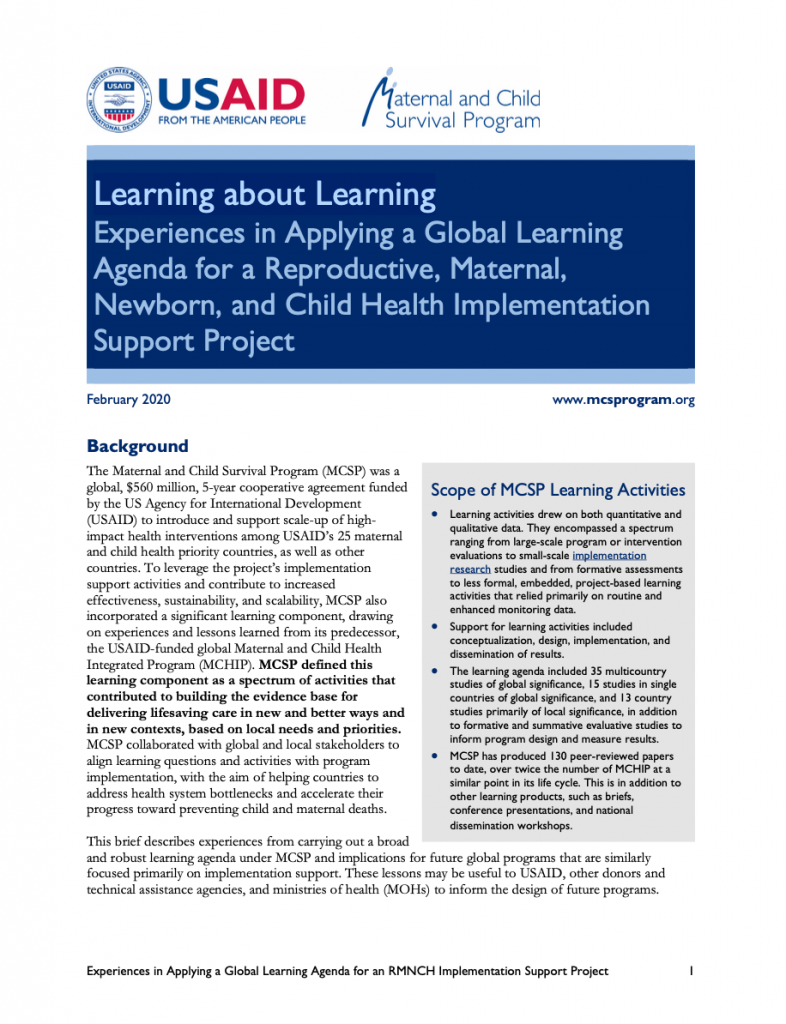
This brief describes experiences from carrying out a broad and robust learning agenda under MCSP and implications for future global programs that are similarly focused primarily on implementation support. These lessons may be useful to USAID, other donors and technical assistance agencies, and ministries of health (MOHs) to inform the design of future programs. […]
Read More…
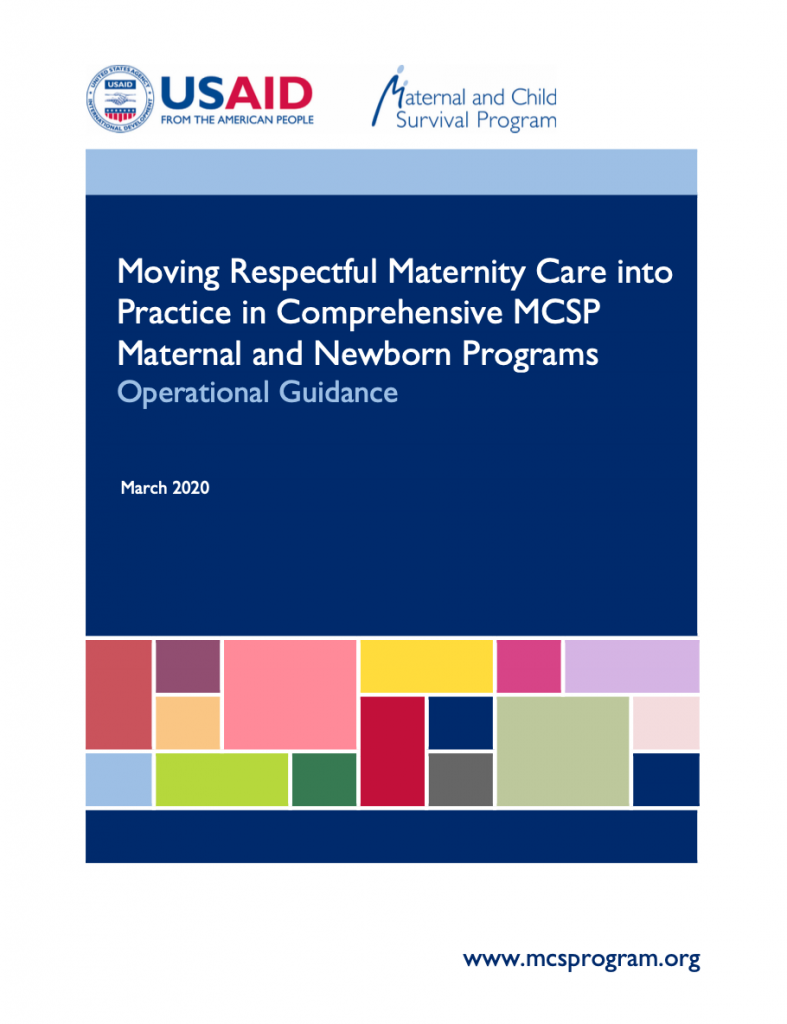
Women’s and families’ experiences of childbirth care in health facilities is fundamental to their overall experience of childbirth and to their decision about where to give birth. Childbirth is an experience with deep personal and cultural significance and women and families want, and have the right to, respectful dignified care during childbirth. Studies from around […]
Read More…
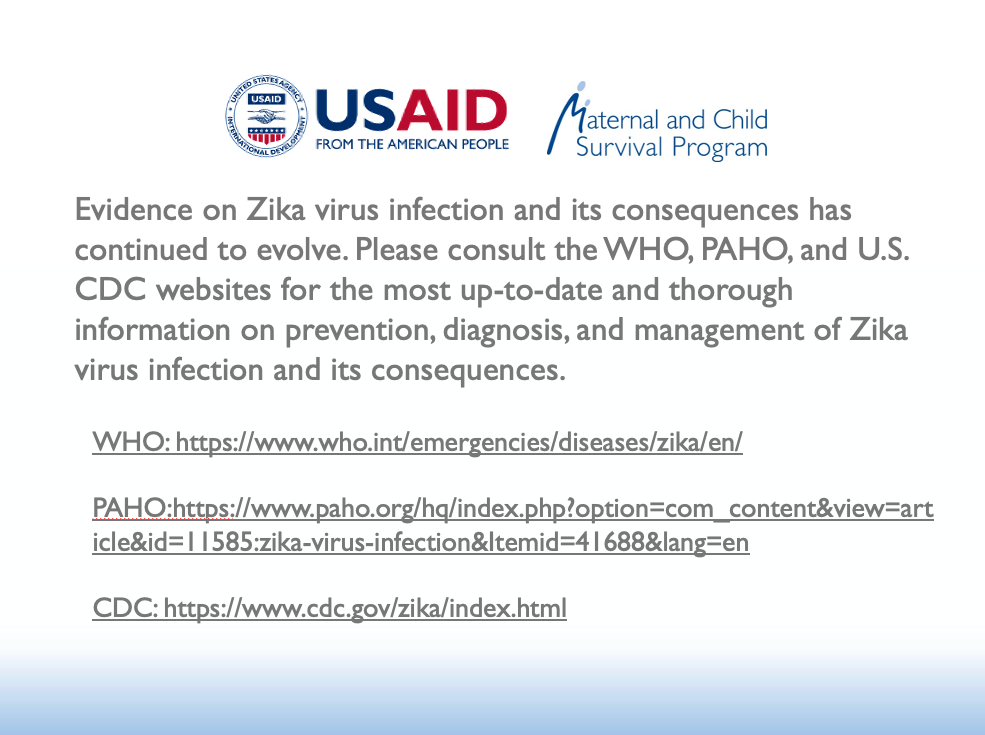
Evidence on Zika virus infection and its consequences has continued to evolve. Please consult the WHO, PAHO, and U.S. CDC websites for the most up-to-date and thorough information on prevention, diagnosis, and management of Zika virus infection and its consequences. […]
Read More…
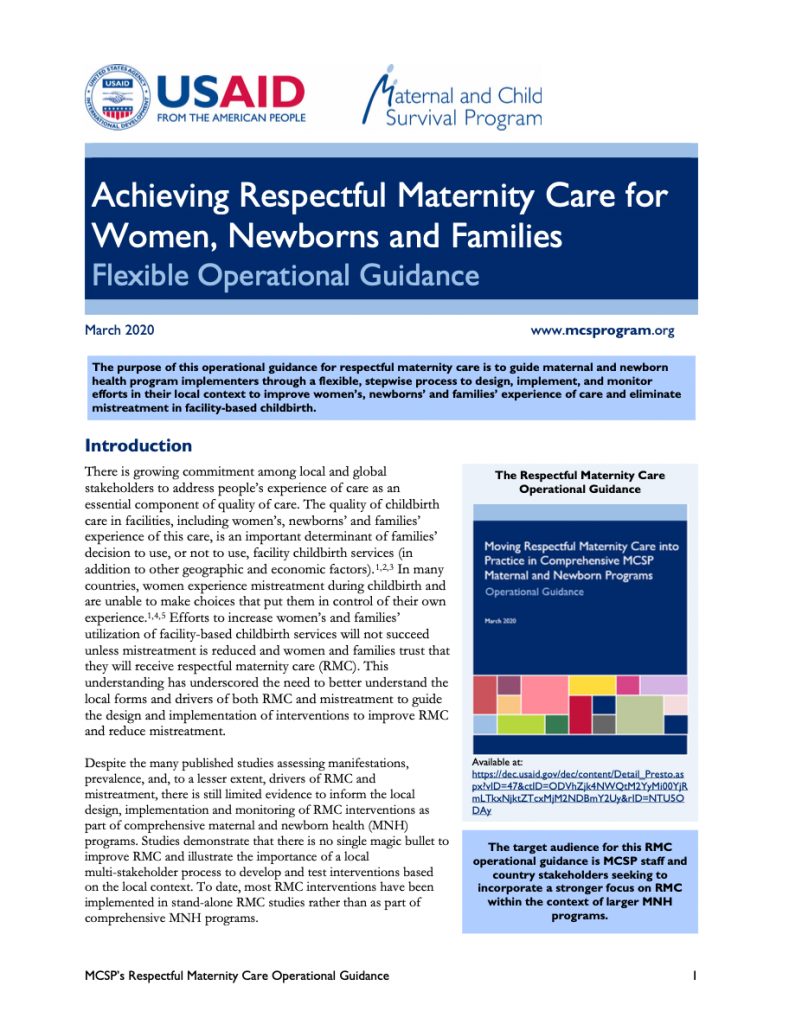
The purpose of this operational guidance for respectful maternity care is to guide maternal and newborn health program implementers through a flexible, stepwise process to design, implement, and monitor efforts in their local context to improve women’s, newborns’ and families’ experience of care and eliminate mistreatment in facility-based childbirth. Also available in French […]
Read More…
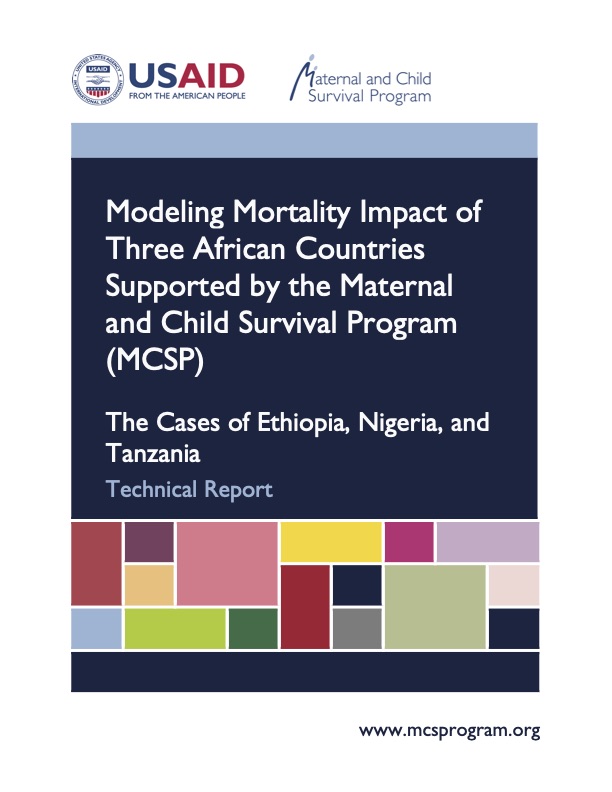
This report summarizes an impact modeling exercise that MCSP conducted to assess country progress as well as its contributions to changes in maternal, newborn, and child mortality trends. MCSP used the Lives Saved Tool (LiST) to estimate the mortality impact of the documented changes in coverage of MCSP-supported HIIs. […]
Read More…
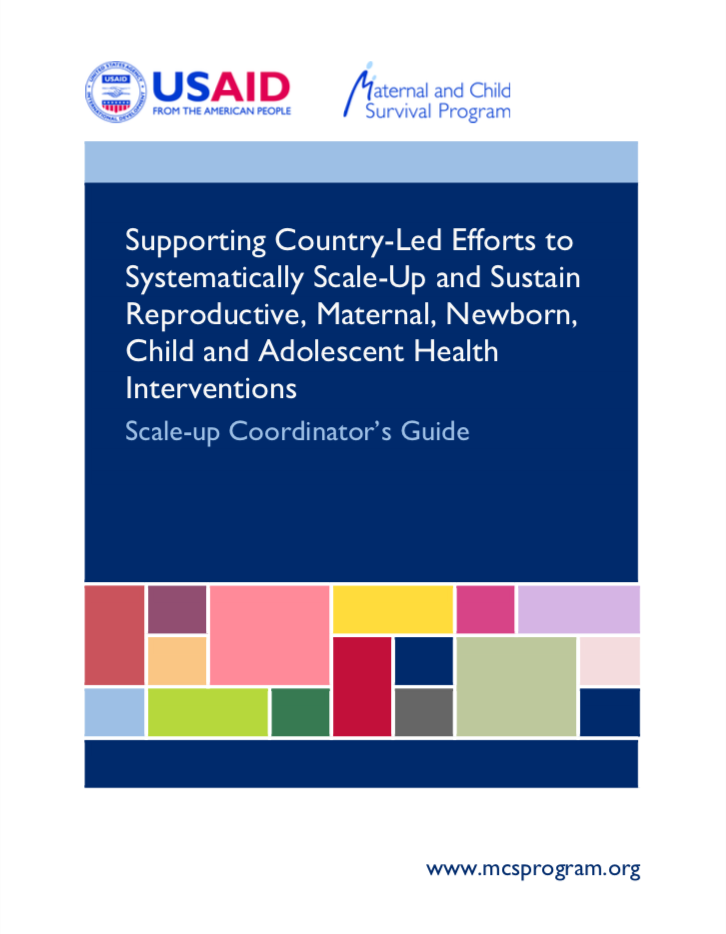
The Coordinators Guide and Toolkit are intended for those supporting a Ministry of Health-led systematic process of scale-up of one or more high-impact reproductive, maternal, newborn, child and adolescent health interventions, geared towards a scale-up coordinator or scale-up manager role. This guide is intended for use by those who support a country’s systematic process of […]
Read More…
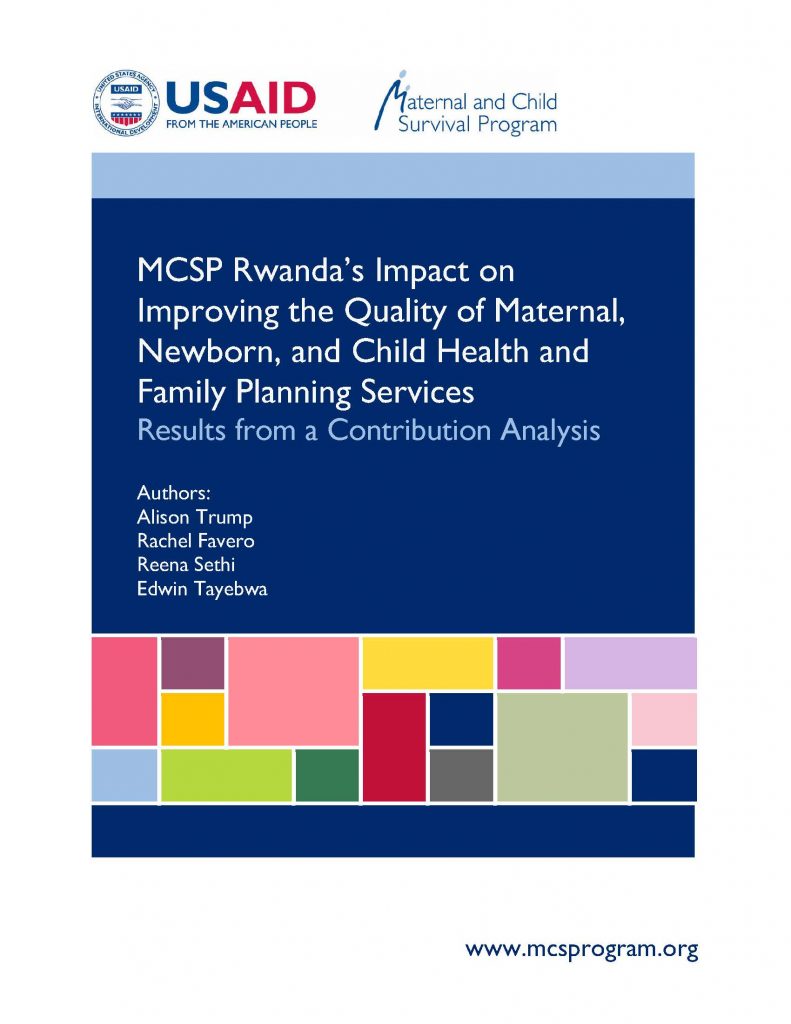
This analysis set out to answer the following questions and to assess evidence to support these questions: How did MCSP’s low-dose, high-frequency training and mentorship approaches improve and maintain health worker competencies in maternal, newborn and child health, and family planning? How did MCSP contribute to an increase in the uptake of postpartum family planning […]
Read More…
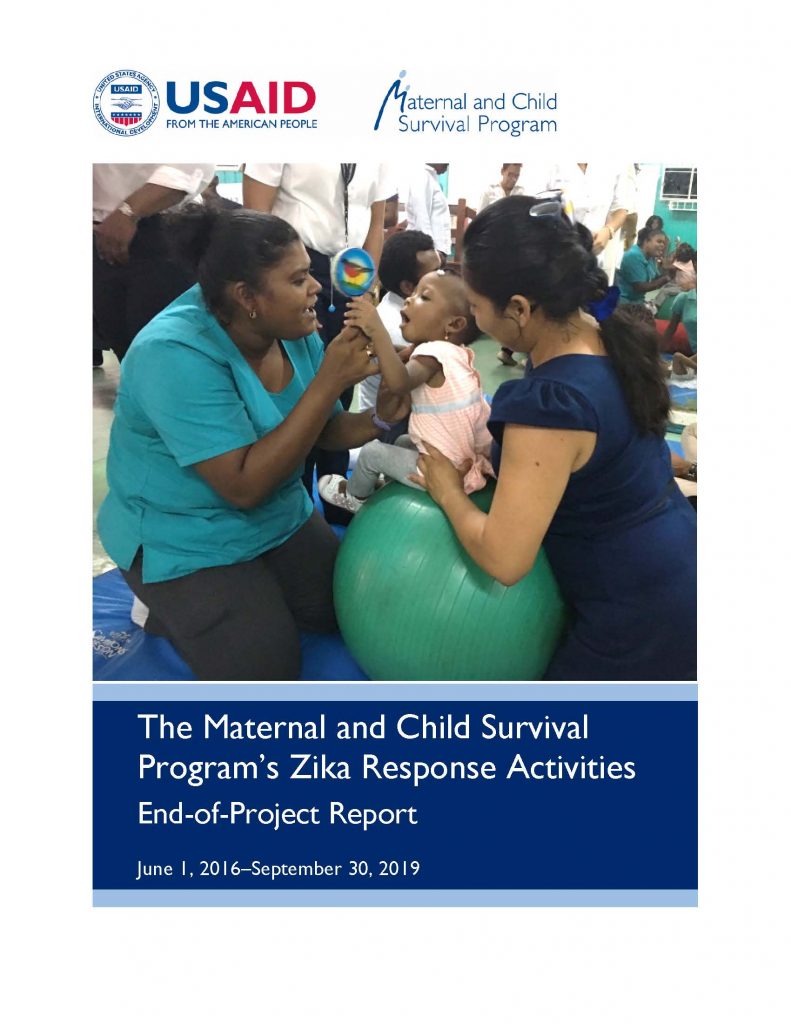
In February 2016, the World Health Organization announced that the recent cluster of microcephaly cases and other neurological disorders reported in Brazil, following a similar cluster in French Polynesia in 2014 (both areas affected by a Zika virus [ZIKV] outbreak), constituted a Public Health Emergency of International Concern. MCSP responded to the outbreak in June […]
Read More…
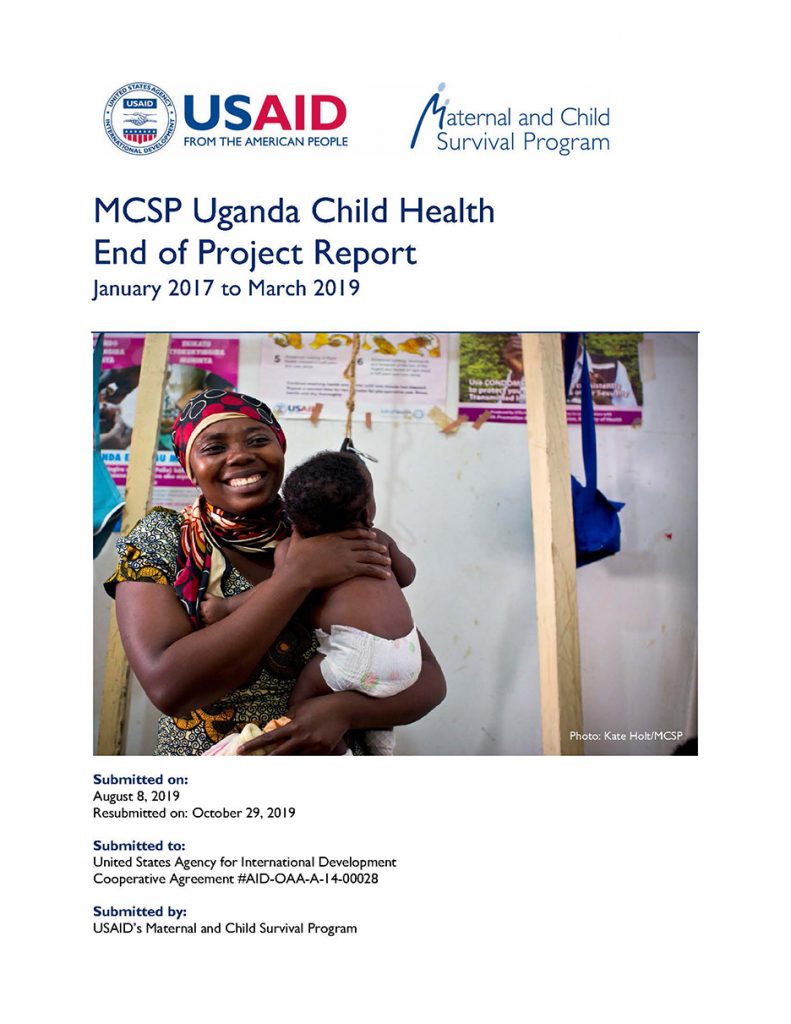
USAID commissioned technical assistance from MCSP in Uganda in late 2016 to identify an essential child health package (ECHP) and build the capacity of USAID’s Regional Health Integration to Enhance Services (RHITES) projects in the East Central (EC) and South Western (SW) regions to implement the ECHP using a health systems strengthening approach. The aim […]
Read More…
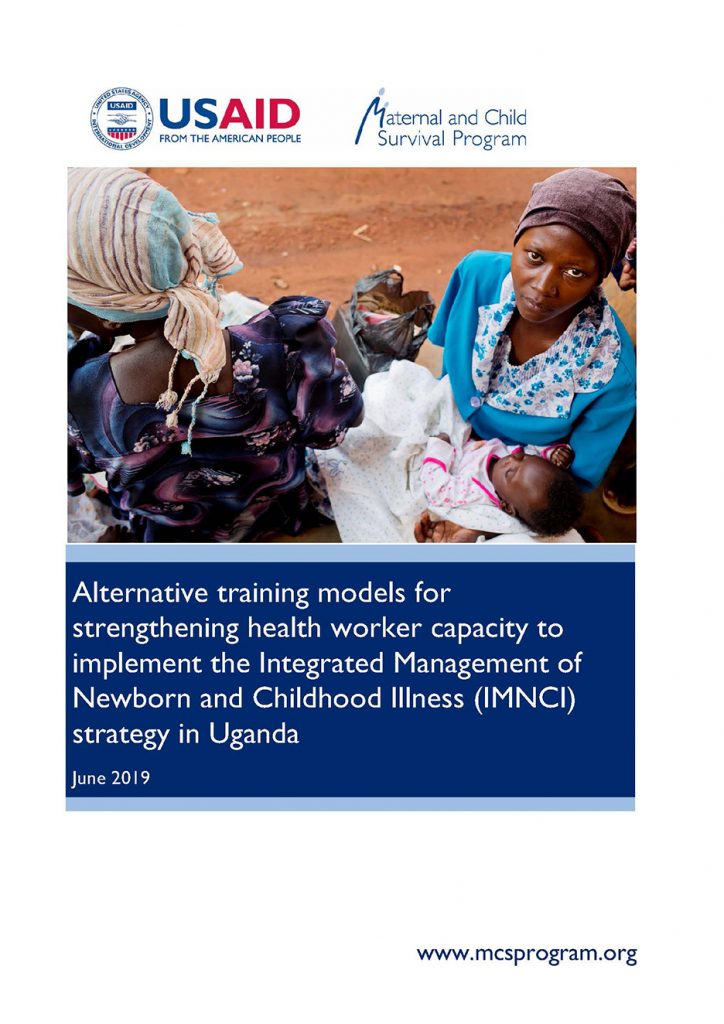
In October 2017, MCSP, alongside the RHITES partners, collaborated with the WHO and the MOH to pilot two alternative training approaches for implementation of the Integrated Management of Newborn and Childhood Illness (IMNCI) strategy — the distance learning model developed by WHO and the short-interrupted course model developed by the MOH — to roll out […]
Read More…










